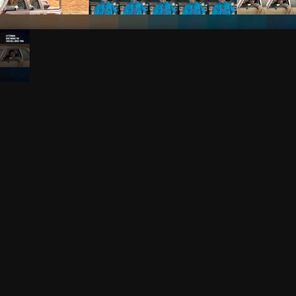
Bruce
Loan OfficerMy Favorite Discussions
-
All Discussions
-
-
What Does Residual Income Mean On VA LOANS? How do you calculate residual income? What does residual income tell you. What is the formula for residual income for a mortgage. What does residual income affect?
-
I want to know how a lender credit from the mortgage lender works. I heard that mortgage lenders can offer a lender credit towards closing costs.
-
My 12 year old lab is getting a younger brother, a Doberman puppy. I have always believed in having two dogs for company, they understand each other. My old guy Amici will teach the new puppy Bullet all the habits of each family member.
Hi! My name is Amici! I’m a dog. I’m a Labrador Retriever, although I detest retrieving. I was born in New Orleans, a tough town, and then shipped off to Florida. I’m really a black mutt with a curved funny tail; I was also the runt of the litter, and no one wanted me. I also have a fleshy tumor on my neck. There were many strikes against me. First, I’m black; the second, I’m the runt, I don’t lick or kiss, but I’m friendly like my name. My parents found and adopted me just before I got the needle. I was so scared I stayed in the back of my cage shivering, just waiting for love. My future parents didn’t notice me in the back of the cage, but Andy their son, found me just when all hope was lost! Andy loves all animals. Boy, am I lucky.
They brought me to their house to meet another dog, Budaj. He was a beautiful boy dog, just like me! He was white and a pedigree, and he loved me. He taught me quickly about mom, dad, and Andy. Budaj did not like men! Everyone was afraid of dad, so I learned from Budaj to dislike men. I was taught mom was the only one for us. Although I learned that dad and Andy were great guys, Budaj lived for mom. Dad has a big booming voice that shakes the house because he sings. Mom can curse like a drunken sailor during hockey games, and all is fine; dad just whispers, “drat or darn,” and me and Buds, we run in fear. I’m not sure why, dad has never yelled at me or hit me. He taught me “please,” “thank you,” excuse me,” and I responded. Budaj just doesn’t like him; he hates Andy even more. I don’t know why. Budaj says to never, ever go down the hall to Andy’s room; it’s evil. I’m beginning to believe Budes has issues.
Andy is soft-spoken and a lover of all animals. I’ve seen him capture water bugs and release them outside, and dad, well, you can only imagine what he does; it’s not pleasant.
I’m am very lucky to have a big yard with a pool. I never swim; I hate the water. That’s right, a lab won’t retrieve or swim, and I really hate car rides, all that wind blowing. I enjoy chasing squirrels around the yard. We have bunny rabbits, but dad says we don’t chase them, so I don’t. I’m a good boy. I have many pet names I’m called, and I always answer; you never know, there might be a meatball waiting for me. They call me Amici, Mici, Coco, Peco, Sweebums, Meatball; I actually have seasonal names, Pumpkin, etc.
I’m being raised as Italian, Polish, and Ukraine; boy, they can cook! Meatballs are my favorite. When dad begins to make meatballs, I can hear the wrapping coming off the meat, and I am there to help dad any way I can! Pierogis, Kielbasa, Stuffed Shells, Chicken, and Bacon are my favorites. I have so much love from my family, and the best part is that they are medically trained, not dad though; he just cooks. My Aunt Janelle is a veterinarian! Dr. Aunt Janelle says my tumor is no big deal. Love, food, and healthcare, what more could you want! I have three beds to sleep in, and I sleep in all of them, on the rugs and on the tiles when it’s hot outside.
I cried so much the night that Budaj died. He was so young and my best buddy. It took some time to get over him, I remember everything he taught me, but I love dad and Andy. Since Budaj passed, I have been barking. Budaj didn’t bark much; he woofed when Andy was near. We sold the big house with the big yard, and we are looking for a new home. I bark at everyone walking by in our present home, especially UPS; I hate those brown uniforms. My yard is small, but I go on many walks. I’m loved and well cared for. However, when dad corrects me, I feel sad, but no problem. If I don’t like what he said, I walk into another room and rest, there’s always a bed handy.
My day is full. I mostly sleep and pretend I’m guarding something. I watch western movies with dad. He exercises as he watches television, but I’m just waiting for my next meal. Wherever I’m resting, I keep a keen ear to the ground if someone steals the refrigerator or tries to sneak snacks.
My parents were told I was three months old when I was adopted. They lied so they did not have to give me a worm test. They named me Noel to pretend I was born during the Christmas season. Well, I had worms, and I was seven months old. Poor dad had to keep Budaj’s crap and mine separated for two months until I was better. Boy, if that’s not real love. I’ll be nine years old sometime in July; we aren’t sure because they lied at the kennel; no one wanted me. No one wanted a black runt of a dog with a crooked tail and worms. I give unconditional love; I’m a dog; we all do! My mom and dad, and Andy choose me unconditionally to love me. Now I know what love really is about. I hope all pets could be adopted like I was, unconditionally.
I celebrate my birthday July 4th, and boy, oh boy, so many people celebrate my birthday with firecrackers, which annoy me. It’s good to be an All-American Dog!
years old sometime in July; we aren’t sure because they lied at the kennel; no one wanted me. No one wanted a black runt of a dog with a crooked tail and worms. I give unconditional love; I’m a dog; we all do! My mom and dad, and Andy choose me unconditionally to love me. Now I know what love really is about. I hope all pets could be adopted like I was, unconditionally.
I celebrate my birthday July 4th, and boy, oh boy, so many people celebrate my birthday with firecrackers, which annoy me. It’s good to be an All-American Dog!
-
Property taxes in Illinois is going through the roof. In Cook County, property tax assessor office announced property reassessment 41% which means property taxes in Cook County (the county the city of Chicago is in and the largest county in Illinois and largest county in Chicago and surrounding suburbs). I want to know if anyone with expertise in property tax assessments if Illinois have a property tax cap? Is there a maximum limit on how much property taxes can go up in Illinois? At what age do you stop paying property taxes in Illinois? How do I fight a high property tax reassessment by the county assessor’s office in Illinois? What does a 41% increase property tax assessment by the Cook County Assessors Office mean on my property taxes? Why do property value and property taxes increase? Are homeowners of Chicago and the Chicago suburbs see a big property tax increase? What if I cannot afford the property tax increase? How do I avoid paying property taxes in Illinois? How are property taxes in Illinois compare with the rest of the country? What is the difference in property taxes in Illinois between an owner-occupant home versus an investment home or investment property? I just watched a breaking news about Cook County Assessors Office increasing in the South and Southwest Chicago suburbs:
-
I have a question I asked multiple people who are called expert loan officers and credit repair geniuses but I am getting conflicting answers. I want to know if a consumer needs to get his credit scores up for a mortgage to a 640 FICO. He has never missed a monthly payment and has perfect payment history the past five years. He has 10 credit card accounts with all of them maxed to the credit limit. Here are the credit card balances and credit card limit. His middlw credit score is currently 525. Question is what credit card should he pay down the balance to lower his credit utilization ratio. Should he start paying down the lower limit credit first or should he pay down the higher credit limit credit card first. Here is his credit cards, the balances, and the credit limit.
CREDIT CARD. BALANCE LIMIT
1. DISCOVER $498. $500
2. CAPITAL ONE. $470. $500
3. CREDIT ONE. $490. $500
4. SELF VISA. $1,500. $1,490
5. TRUMP CARD $4,000. $4000.
6. JOURNEY CARD $2,130 $$2,200
7. CREDIT PLUS $3,490. ,$3,500
8. BUDDY VISA $1,500. $1,600
10. MISSION LANE $1498 $1,500
-
-
Home prices have skyrocketed between 2019 and today in 2024. You don’t have to be a rocket scientist or a genius to know what goes up fast generally comes down. Real Estate have always gone up over time and is considered a very safe investment. However, the safe investment part is that real estate generally goes up over time. Any investment that soars 100% or more over a period of five years will come down to make a correction. Here are the top states where Home Prices will crash in 2024 going into 2025. This is not saying that Home prices will remain low forever. However, due to the fast huge increase in Home prices in such a short time span, you will see a housing correction. It’s brewing now. High mortgage rates and high home prices is yielding high inventory, longer time on the market, price reductions, and sales prices substantially under listed market prices. Here are the top States you can expect Home Prices to CRASH in 2024 into 2025:
5. Washington
4. California
3. Colorado
4. Texas
5. Florida
Please watch the attached informative video clip:
-
I ran into this video clip of Sylvester Stallone about there’s three types of people in your life that hit home and is so true. ❤️ 😍 💖 ❣️ 💕 💘 If you are like me, as time pass, you find out more about the bad side of people. Did you ever hear the saying, I rather buy a house with no neighbors. I don’t like people. I love animals. Indeed, this is a famous adage for people who love animals and those who like being alone or prefer a quiet life and not dealing with two-faced people. People can lie, cheat, steal, and be sneaky. Often, many people put their guard down by trusting a so-called friend to be let down and hurt. Hence, they do not want anyone to be fooled and get either scammed, betrayed emotionally, or emotionally hurt. Many people get betrayed, lied to, taken advantage of, used, or scammed by a so-called friend, family member, sibling, parent, co-worker, spouse, business partner, or employer. People can be sneaky and conniving. Married couples can turn on each other, lie, cheat, betray, and hurt. Those hurt multiple times do not want to interrupt their living conditions. It means you should have few friends or be in large crowds because they cause more harm than good. Animals do not know how to cheat, betray, lie, connive, scam, steal, or intentionally hurt. They give you unconditional love without expecting anything in return. Many people do not want to get hurt again and say this because they love animals more than anything else since these creatures are loyal and will never betray your trust or hurt your feelings. At the same time, humans can do so easily and bring problems that may affect one’s peace of mind. Here are some other versions of it:
- “I would rather have pets than friends.”
- “I’d rather live in the wilderness with my animals than in any city with people around.”
- “My animals are better company than most people I know.”
These sayings express what many individuals feel about preferring loyalty, companionship, and simplicity offered by creatures. People may choose to stay on their own without close neighbors within their vicinity, thus enjoying quietude plus the freedom of having pets undisturbed.
https://www.facebook.com/share/r/Vb8zhncFQhKRakMt/?mibextid=oFDknk
-
This discussion was modified 9 months, 3 weeks ago by
 Gustan Cho.
Gustan Cho.
facebook.com
1.2K views · 42K reactions | | Kareem Reimo Zoe DeLesline | pharaoh_mak_333 · Original audio
. pharaoh_mak_333 · Original audio
-
From what I understand, average home prices in Los Angeles and Orange County California is $1.5 million. If a recent college graduate from University of California Los Angeles with a $80,000 a year salaried professional job and his fiance who is a registered nurse making $70,000 a year got married, can they qualify and get pre-approved for a mortgage to purchase an average 3 bedroom, 2 bathroom, one car garage house in either Los Angeles or Orange County, California? What will be a strategy for them to become first-time homebuyers. Are they priced out of the housing market? Do they need to rent? They each have a $800 per month car payment.
-
-
Like to introduce you to one of the owners of Bari Beef headquartered in Elgin Illinois. Nick Favia is one of the owners of Bari Beef, the best Italian Beef in the country. I have sent Italian Beef from Bari Beef to my CEO Mike Kortas and President Mat Grella multi times and they love it. CEO KORTAS would have fired my ass if I sent shifty Beef. I sent Bari Beef to all our senior advisors at NEXA MORTGAGE and they all love it. I want to thank everyone at Corporate NEXA Mortgage especially Taylor Bradley, Aes, Kristi Wake, Rana Mortensen, Mat Grella, Miriam Montojo, Mrs. Edna Kortas, Mike Neill, and the the ultimate CEO Mike Kortas for everything they do for me and my team. Like to thank Counselor Wendy Lahn ESQ and Mr. Nick Favia for the great Bari Beef 👍.
-
How is the Wisconsin housing market forecast? How much is an average price of a house in Wisconsin? What cities in Wisconsin have the best bang for the buck on homes and the best school districts. How is home prices in Wisconsin compared to the rest of the nation. How is the economy and job market in Wisconsin. How is the cost of living and taxes in the state of Wisconsin. Is Wisconsin a good place to raise a family. Is is smart to relocate to Wisconsin from other states? What states are people moving from to Wisconsin. What are the best cities with the lowest crime rate and affordable housing in Wi a homebuyer from out of state should look at in Wisconsin. Wisconsin is a community property state. How will that affect homeowners? What is the cost of living, inflation, taxes, housing and renting, and last but not least, politics. I heard Wisconsin is a swing state. What does it mean? Will the state being a swing state affect the education and mental health of my young children and my wife?
-
I have a couple who want a cash-out refinance loan on an owner-occupied property that is completely paid off. However, they have a Chapter 12 bankruptcy that was discharged a little over a year ago. Has anyone else experienced this situation and have advice on potential options for them? Thanks!
-
I have learned recently that Venice, Italy, is charging 5 euros to gain entry to the city. The city has experienced a high volume of profit. There are peak times that they charge; there are 29 dates from April to mid-July, mostly holidays and weekends, between 8:30 a.m. and 4 p.m..
Realizing that nothing in Venice costs under 5 euros, including coffee, it’s not too expensive in the big picture. The profit so far is 2.43 million euros, or about 2.75 million US dollars. That’s a lot of espressos.
Some people asked, “Why should I pay an entrance fee to a city?” It wouldn’t fly in New York City; imagine putting a turnstile at all the various ways to enter the city. They actually do have tolls, which is sort of the same thing. The E-Z pass for bridges and tunnels entering the city is $11.00-$14.00, depending on peak hours. Chicago and San Francisco all have these tolls; travel is a curse. They charge to enter Disneyland and Epcot. The only advantage is that in Disneyland and Venice, you don’t drive. Trams in Disneyland, gondolas, and water taxis in Venice.
There is always a side hustle to these fees, and there is no way to escape them. If you drive or walk, you are charged. Parking at sporting events is so expensive that gas is taxed and relaxed.
Wouldn’t it be Utopia if there was a society that existed with no cars, no gas, no taxes, and no entrance fees?
Can anyone make a suggestion? Maybe artistic intelligence can answer this riddle.
-
-
-
Thousands of people in California are relocating to Arizona. How are housing prices in Arizona compared to the rest of the country?
-
Is it possible to become a first-time homebuyer in California? What is it with California that people want to live in that state? California has high crime rates, double the home prices than other states, high cost of living, high cost of goods and services, high regulations, and high unemployment rates. What makes people want to stay in California?
-
A “No-Ratio DSCR Loan” typically refers to a type of commercial real estate financing that doesn’t require the calculation or consideration of the debt-service coverage ratio (DSCR) for the property being financed. Let’s break down what this means:
-
Debt-Service Coverage Ratio (DSCR): The DSCR is a financial metric used in real estate lending, especially for commercial properties. It represents the property’s ability to generate enough income to cover its debt obligations, primarily the mortgage payments. The DSCR is calculated by dividing the property’s net operating income (NOI) by its total debt service (mortgage payments).
-
No-Ratio: When a loan is referred to as “No-Ratio,” it means that the lender does not consider the DSCR when evaluating the borrower’s eligibility for the loan. This can be beneficial for borrowers who may not meet the traditional DSCR requirements but have other strong financial attributes or unique circumstances that make them creditworthy.
In essence, a No-Ratio DSCR Loan is a type of financing option where the lender focuses less on the property’s income-generating ability and more on other aspects of the borrower’s financial situation, such as their creditworthiness or assets. This can be useful for borrowers who have unconventional income sources or situations that make it challenging to meet traditional DSCR requirements.
It’s worth noting that these types of loans may come with higher interest rates or different terms compared to loans where the DSCR is a critical factor in the lending decision. Additionally, they may be more common in certain niche or specialized lending markets. Borrowers considering such loans should carefully review the terms and assess the overall cost and risk associated with them.
-
-
It’s OFFICIAL. Barack Obama has convinced Joe Biden to step down from running for reelection in 2024 against former President Donald Trump. We have not heard from Joe Biden or Jill Biden but we have heard this breaking news from reliable sources. More updates to come.
-
How does OTC New Construction Loans work on Conventional Loans. What are the eligibility requirements for one-time-close new construction loans? What can you build with OTC New Construction Loans. What is the mortgage process on OTC NEW CONSTRUCTION LOANS? What is the down payment requirements, credit score guideliines, debt-to-income requirements, and what type of property can you build?
-
70% of Americans feel Joe Biden is mentally incompetent to run for reelection. This SUBFORUM is created so members can show Joe Biden caught on tape being senile and mentally incompetent.
-
Here’s a FUNNY VIDEO of David Letterman pranking customers of a TACO BELL fast food franchise restaurant.
https://www.facebook.com/share/r/vcEu1JodEHY4cHHt/?mibextid=D5vuiz
facebook.com
From 1996 - Dave spends the day taking orders at the Taco Bell Drive-Thru. #davidletterman #letterman #lateshowwithdavidletterman #latenightcomedy #comedy #comedyreels #comedyvideos #funny...
-
Anyone in this forum community know about rent to own homes?
https://call.whatsapp.com/video/mshGWS1xau29UItoKIX3j3
-
This discussion was modified 1 year, 5 months ago by
 Sapna Sharma.
Sapna Sharma.
-
This discussion was modified 1 year, 5 months ago by
-
-
What is the difference between a rate and term refinance, and an FHA and VA Streamline Refinance?



